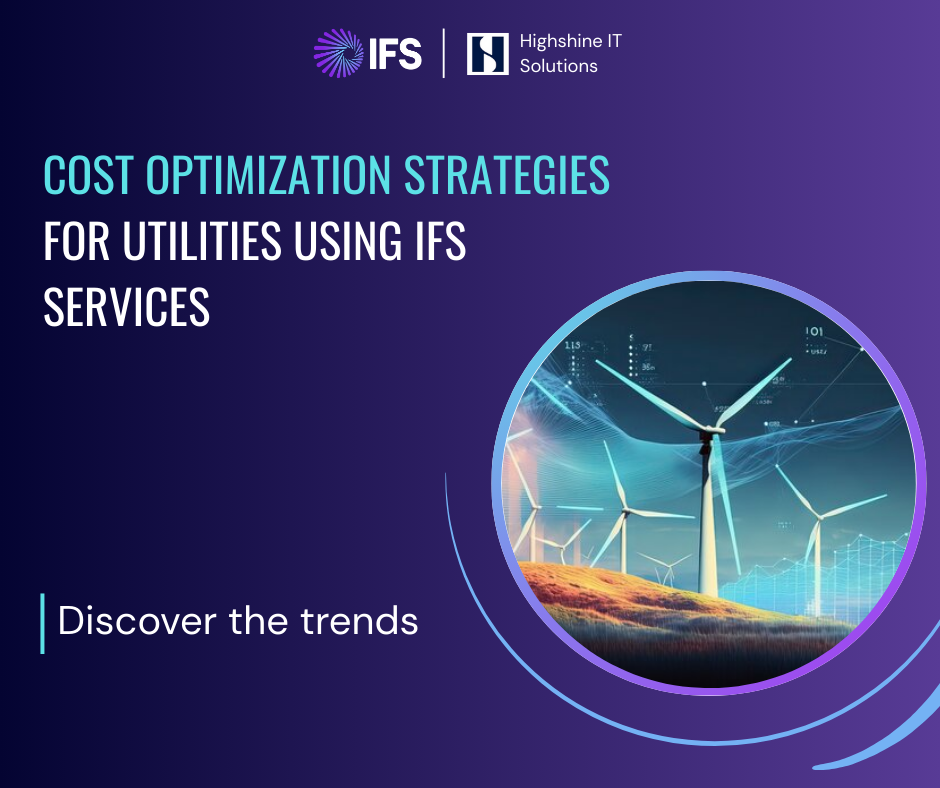
Enhancing Manufacturing with IFS Cloud Solutions
Introduction to IFS Cloud in Manufacturing
The manufacturing industry is on the brink of a technological revolution. A new study says that more than half of manufacturers aim to spend 20% more on digital tools in the next year. This article looks at how IFS Cloud manufacturing solutions are leading the way in this change by offering a full set of tools adapted to the sector’s needs.
IFS Cloud is unique because it has a flexible design, built-in features for managing assets (like wind turbine production), excellent support for project-based manufacturing, such as at Hindustan Aeronautical Limited (one of our esteemed clients), and integrated industrial AI for handling sensor data and maintenance through IoT—all on a platform that allows for safe upgrades and quick setup.
Readers will learn how using cloud technology in manufacturing may improve operations and why IFS Cloud is becoming essential for modern manufacturers.
Key Features of IFS Cloud Solutions
IFS Cloud separates itself from other digital solutions through a combination of core ERP depth and differentiated capabilities:
- 1. Core ERP, on par with peers: finance, MRP, BOM, shop floor control, and quality management. Some of the most useful things that can be done with ERP are that you can check if you have the parts to build next week’s orders, workers log what they made and any scrap, and finance sees the true cost without extra spreadsheets.
2. The architecture is composable and upgrade-safe: modular deployment allows for phased rollouts without requiring code forks, while "extensions" enable custom fields, workflows, and UI changes, all of which remain upgrade-safe. You don’t need to do everything at once, and future upgrades don’t mess with your current operations. You can launch maintenance at two sites first, then add field service later.
3. Integrated asset lifecycle (EAM): a single spine from production to maintenance to field service—particularly valuable in asset-heavy industries like wind power, where serialised components, test data, and service history must stay connected. Consider a scenario where a machine part, such as the gearbox of a wind turbine, exits the factory with its data securely stored. Years later, a field technician scans it, sees the past data, and records today’s data on your phone. IFS links factory data to fieldwork so everything stays in one place.
- 4. Project manufacturing as a first-class capability: native project/WBS, pegged supply, stage/milestone billing, and earned value—well-suited to engineer-to-order scenarios such as aerospace and defence, shipbuilding, etc. Take the case of one of our clients, Ingalls Shipbuilding, where each ship is broken down into clear steps, and parts are set aside for that ship. Billing is based on milestones, and you can see at any time whether you're on budget and on schedule.
5. Embedded industrial AI and IoT: real-time production data, predictive maintenance, anomaly detection, and AI-powered planning and scheduling. This is quite useful in critical industries like mining, manufacturing, and power, where safety, compliance, and overall operational efficiency depend on real-time data from different sensors.
Let’s say a machine’s temperature starts creeping up. The system spots it, books a short maintenance window between jobs, and suggests a new run plan so orders still ship on time. This saves a lot of time and effort and ensures smooth operations.
6. Field Service + Manufacturing Linkage: keeps service and manufacturing in sync. Imagine a procurement system that highlights auto-reserve parts, creates transfer/purchase requests, and shows availability for materials needed to fix a service alert via automation. This reduces unscheduled downtime and service teams and production work in sync
7. Aurena interfaces with industry “lobbies”: role-based dashboards tailored for planners, supervisors, and quality managers to streamline daily decisions. A maintenance supervisor opens a home screen with tiles for at-risk machines, overdue work, and parts on hand. A quality manager sees issues by line, their age, and the top causes. This helps the maintenance teams prioritise their work, ensuring lower downtime.
8. Open integration: REST/OData APIs for shop-floor connectivity, IoT, and digital twins; unified data model across manufacturing, project, service, supply chain, and finance.
Benefits of IFS Cloud in Manufacturing
Implementing IFS Cloud technology in manufacturing offers advantages that change how companies operate:
Operational efficiency: real-time shop-floor control and lean scheduling reduce downtime and WIP inventory while improving schedule adherence.
Traceability and compliance: built-in serialisation, batch/lot tracking, audit trails, and quality workflows help meet regulatory requirements in different types of manufacturing, like discrete, process, project, and engineer-to-order (ETO) manufacturing.
Shop-floor-to-field transparency: a single view from production through asset maintenance to field service raises customer satisfaction and lowers total lifecycle cost.
Cloud agility: faster global rollouts, secure scaling, and easier updates than legacy on-premise ERP.
IoT and predictive capabilities: machine data integration, digital twin support, and predictive maintenance catch issues before they impact output.
Analytics for action: role-based insights, lobbies, and embedded AI improve planning, scheduling, and demand forecasting.
Note: Compared with SAP or Oracle, IFS may trail in both its localisation breadth and the size of its third-party ecosystem. Many manufacturers still prefer IFS where asset intensity, project complexity, or aftermarket service depth are priorities.
How the Manufacturing Industry Has Evolved Because of IFS
IFS Cloud has impacted manufacturers across the four primary modes—discrete (automotive, aerospace, electronics), process (chemicals, food, pharma), project/engineer-to-order (EPC, capital goods), and mixed-mode. By aligning capabilities to common pain points—accurate planning amid demand volatility, resource balancing with short lead times, traceability, quality at scale, and rapid change management—firms have improved planning and execution while gaining transparency from the shop floor to the field.
Looking ahead, IFS’s 2025–26 roadmap emphasises AI-powered planning, predictive maintenance, and deeper Industry 4.0 integration, helping manufacturers progress towards smart factory models with greater automation, advanced analytics, and digital twin support.
Case Studies: Success with IFS Cloud in Manufacturing
Manufacturers adopting IFS Cloud report improvements in planning, execution, and customer satisfaction—especially in asset-heavy, project-based, and aftermarket-centric operations:
Wind turbine manufacturing (integrated asset lifecycle): serialised parts, quality, and test data flow from build to commissioning; IoT-driven predictive maintenance and field service coordination reduce unplanned downtime and warranty costs.
Aerospace and defence (project manufacturing): native WBS, pegged supply, and stage billing align program control with shop-floor execution; traceability and export-control requirements are supported end-to-end.
Aftermarket-led discrete manufacturing (service + manufacturing): integrated field service, inventory, and production planning raise first-time fix rates, improve SLA performance, and feed continuous improvement back to the plant.
These outcomes are reinforced by modular deployment and upgrade-safe extensibility, ensuring that improvements persist through product updates.
Conclusion: The Future of Manufacturing with IFS Cloud
As we look towards the future, it’s clear that IFS Cloud will continue to drive innovation within the manufacturing sector. By combining a composable, upgrade-safe architecture with integrated asset lifecycle management, strong project manufacturing, and embedded industrial AI, IFS Cloud provides a practical path to smarter operations. The platform’s ongoing developments promise to expand its capabilities and applications, making it an even more integral part of manufacturing processes. For forward-thinking manufacturers, adopting IFS Cloud represents a strategic move that positions them for long-term success.





